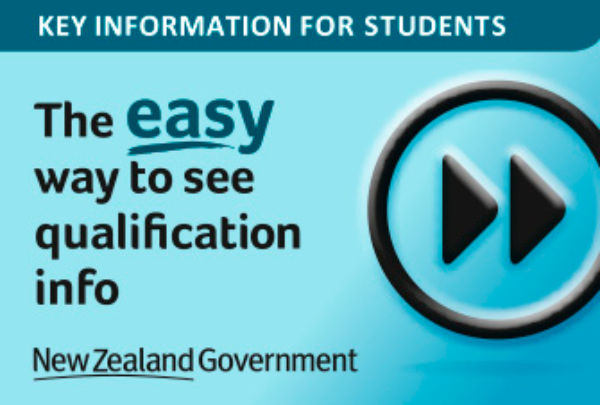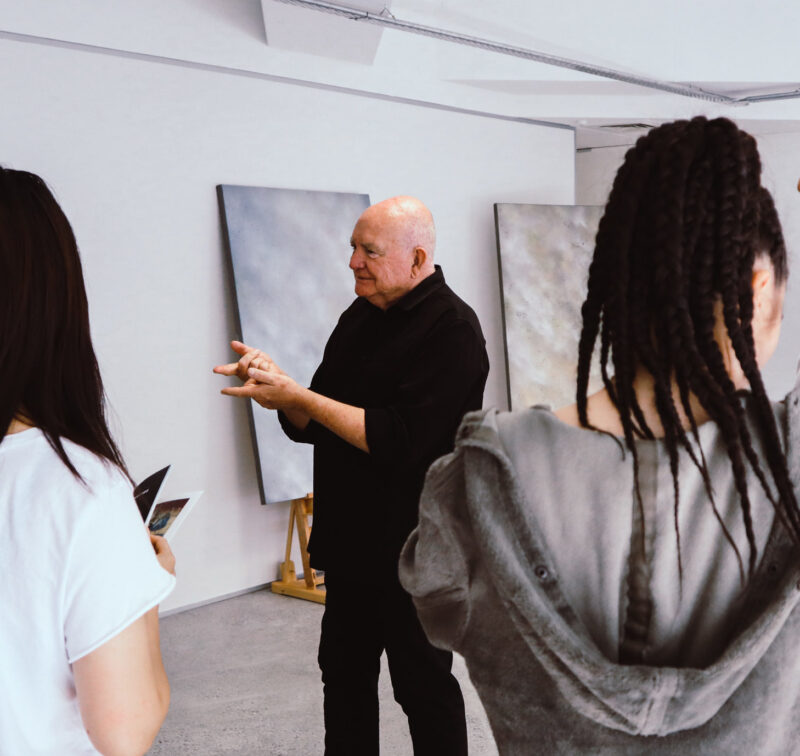Master of Arts in Creative Arts Therapy (Clinical)
Creative Arts Therapy is a form of psychotherapy that utilises creative modalities - including visual arts-making, drama, dance/movement, creative writing, and nature-connected arts - to improve and inform physical, mental, emotional, and spiritual well-being.
Arts Therapy differs from traditional art-making or performance in that the emphasis expands to include attention to the processes of creating and meaning-making. Arts Therapists work with individuals and groups by developing a therapeutic relationship with their client/s with clear boundaries, treatment plans, and outcomes to assist them in their healing. Within this therapeutic relationship, creative expression can have significant impact on the healing process for all people including those experiencing trauma, addictions, and psychological or emotional problems.
Whitecliffe Arts Therapy graduates combine their passion for creativity and for working with others to enhance well-being. They develop the confidence to contribute to this dynamic, emerging field of Creative Arts Therapy, harnessing their own experience and interests to pioneer new frontiers in this rapidly expanding profession.
Applications are only open to those who have successfully completed the Postgraduate Diploma in Creative Arts Therapy.

Key dates
January 2025 Intake 25 • 01 • 25 Application Closing Date: 04 • 10 • 24
View full calendarDuration
2 years, low-residency
Qualification
Master of Arts in Creative Arts Therapy (Clinical) (Level 9) 360 credits including embedded PGDip
Costs
Domestic $9,910 + $300 Student Services Levy International $27,000 + $300 Student Services Levy per year Fees indicated are for 1st year of study. 2nd Year fees may vary. All 2024 fees are subject to change and regulatory approval.
View full fees
Master of Arts in Creative Arts Therapy (Clinical) Course Outline
Creative Arts Therapy differs from traditional art-making or performance in that the emphasis expands to include attention to the processes of creating and meaning-making. Arts Therapists work with individuals and groups by developing a therapeutic relationship with their client/s with clear boundaries, treatment plans, and outcomes to assist them in their healing. Within this therapeutic relationship, creative expression can have significant impact on the healing process for all people including those experiencing trauma, addictions, and psychological or emotional problems.
Whitecliffe Creative Arts Therapy graduates combine their passion for creativity and for working with others to enhance well-being. They develop the confidence to contribute to this dynamic, emerging field of Creative Arts Therapy, harnessing their own experience and interests to pioneer new frontiers in this rapidly expanding profession.

Approach
The Whitecliffe programme offers a spectrum of approaches to Arts Therapy, stretching between two poles:
- ‘The arts as therapy’, follows the philosophy that participation in creative activities is universally beneficial, and that engagement with any of the arts at any level of proficiency, can have a healing effect.
- “The arts in therapy’, or arts psychotherapy, which involves using the arts within a psychotherapeutic relationship as a powerful mode of expression and agent of change.
Students will gain an understanding of how an Arts Therapist can work along this spectrum, taking into account the population they are working with as well as a range of other factors such as context, presenting problems, and appropriate arts modalities.
It is a highly innovative programme offering a variety of creative arts modalities. Applicants are expected to be comfortable or familiar with at least one of these when entering the programme, and to achieve a basic grounding in the other creative modalities during the programme. The programme supports students to develop culturally sensitive practices responsive to the Māori worldview as well as other cultures.

Programme Overview
The Master of Arts in Creative Arts Therapy (Clinical) (MACAT) is a two-year, full-time programme that is currently offered in Auckland only. The seminar pattern involves six intensive seminars during the first year and four during the second year of study.
The Three Inter-related Elements of the MACAT Programme
Intensive weekend and four to five day seminars are held between four and six times annually to enable students to:
- Engage in theoretical and experiential learning with faculty, peers, and local and international practitioners
- Participate in group processes and self-reflexive practices
- Build clinical, research, and presentation skills
Research Project
In the final year of study, students complete an independent research project supported by a research supervisor.
Supervised Practice
Students must complete 750 hours of supervised clinical practice to successfully complete the MACAT and be eligible for professional registration with the regional professional body, the Australian, New Zealand, and Asian Creative Arts Therapy Association (ANZACATA). This is achieved during the final 18-month period of study via placements that involve work with real-world clients and populations. Students are encouraged to seek out a variety of placement opportunities, assisted by faculty. External Arts Therapy supervision is funded by Whitecliffe.
To complete the Master of Arts in Creative Arts Therapy (Clinical), students must complete three years of full-time (including the embedded PGDipCAT) study through blended, low-residency delivery. In addition to the papers listed for the PGDipCAT, the MACAT comprises the following papers:
- Arts Psychotherapy
- Research and Arts Therapy
- Professional Practice (Training and Supervision)
- Research Preparation and Research Project
- Placement

Low-residency Programme
The Postgraduate Diploma of Arts Therapy and Master of Arts in Arts Therapy (clinical) are low-residency courses of study to provide flexibility for students in the workplace and/or travelling to study.
The Postgraduate Diploma is offered in two locations, Auckland and Christchurch, and is scheduled for ten weekends - one per month February to November - in each location. The Postgraduate Diploma offers an introduction to the foundation philosophy, skills and theories relating to the creative arts therapies in readiness for taking skills into the workplace for those working in a related field as a stand-alone qualification, or can provide the pre-requisite for application for progression onto the Masters qualification.
Progressions requirements include assessment of a student’s suitability for clinical practice and academic ability to undertake level 9 research.
The Masters programme is currently offered in Auckland only. The seminar delivery pattern is four intensive seminars per year for two years.

Key Information for Students
NZ Government key information link for students, that provides more information to support your decision making for this programme

Admission Requirements
Eligibility for entrance into the Master of Arts in Creative Arts Therapy (Clinical)
Please note we do not accept direct applications for the Master of Arts in Creative Arts Therapy (Clinical) programme. All students must complete the Postgraduate Diploma in Creative Arts Therapy programme as part of their learning path into the Master of Arts in Creative Arts Therapy (Clinical).
BYOD (Bring Your Own Device) Requirements:
This programme has Bring Your Own Device (BYOD) requirements, the following specifications will support you to be successful in your studies.
Required IT Specifications:
Minimum Hardware requirements
- Mac - Intel processor with 64-bit support; 2 GHz or faster processor with SSE 4.2 or later
OR - MacBook Air with M1 Chip
OR - Intel® or AMD processor with 64-bit support; 2 GHz or faster processor with SSE 4.2 or later
- 8 GB RAM (Recommended 16 GB)
- 250 GB SSD or higher hard drive with 10GB free space minimum
- Wireless capability 802.11n dual-band
- Up-to-date antivirus software
Minimum Operating System
- Windows 10 (64-bit) version 1809 or later; LTSC versions are not supported
OR - Apple macOS Mojave (version 10.14) or later
- Internet and data plan.
Not Supported:
- Chromebooks
- Windows X or Windows S OS
- Tablets (except Windows Surface Pro or iPad Pro)

Faculty

Dr Deborah Green
Head of School, Creative Arts TherapiesDeborah began her career in applied theatre and adult education and worked for 15 years within the South African University and Health sectors as theatre director.
Continue reading
Bettina Evans
Lecturer, School of Creative Arts TherapiesBettina works as a lecturer in the MACAT and course co-ordinator for the PgDip in Christchurch for Whitecliffe College.
Continue reading
Kathrin Marks
Lecturer, School of Creative Arts TherapiesAfter gaining a Bachelor of Counselling at the end of 2013, Kathrin worked in two NGO with people of all ages who had an abuse history.
Continue reading
Eliza Gibbons
Lecturer, School of Creative Arts TherapiesEliza is a registered clinical arts therapist and registered teacher. Her role is to coordinate and support the delivery of the year 3 MACAT programme as well as teaching into and assisting with the PGDip and year 2 programmes.
Continue reading
Heleina Waimoana Dalton
Lecturer, School of Creative Arts TherapiesHeleina is a registered clinical creative arts therapist and an ACC approved, sensitive claims provider. She is experienced in working with individuals and groups in an educational and therapeutic capacity.
Continue readingWhere could this programme take you?
Arts therapists may work in mental health environments, education facilities, community settings and private practice. Many of our graduates have been employed by their clinical placements after completion of the course such as special schools, prison rehabilitation, drug and alcohol services, school counselling, trauma services, disability services, community mental health settings. Graduates of the Whitecliffe Arts Therapy programme are instrumental in extending the field’s reach into new applications. Graduates of MAAT (clinical) are eligible to become professional members of the Australian, New Zealand and Asian Creative Arts Therapy Association. Professional members with suitable background and experience are able to go into private practice and apply for registration to be a counsellor for ACC, provide counselling through the WINZ Disability Allowance Scheme and register for programmes such as the “I Am Hope” free counselling scheme for youth.
Jobs related to this programme
Mental Health Facilities
Education Facilities
Community Services
Prison Rehabilitation
Drug and Alcohol Services
School Counselling
Trauma Services
Disability Services
Private Practice
Community Mental Health Settings
Talk to our team

If you would like to ask us a question or request more information, please detail your enquiry using the form below. If you would like you can contact us directly on 0800 800 300, email us or use the contact us form.